Michael Yarwood’s death: the untold story of the final months of the Gold Coast businessman
Prominent Gold Coast legal identity Michael Yarwood’s sudden death is a mystery. Here’s what happened during his final months.
Crime and Court
Don't miss out on the headlines from Crime and Court. Followed categories will be added to My News.
SIX months before he was found dead in his Main Beach apartment this week, businessman Michael Yarwood visited a Bundall psychiatrist. He told him he could not sleep, lacked motivation and had memory problems.
More concerning were the darker thoughts of the 47-year-old married man, a father of five children.
His psychiatrist wrote: “My main concern is suicidal ideation. I have recently changed and increased his medication, such that I am attempting a hospitalisation.”

The courts were asked to defer legal action for three months so his depression could be treated.
RELATED STORIES:
Michael Yarwood found dead at Main Beach apartment
Yarwood’s vow before sudden death
Mr Yarwood and 81-year-old Will Smith, the Glitter Strip’s accidental millionaire and reclusive car wrecker from Reedy Creek, had been front page news in one of the biggest and most bitter Gold Coast legal disputes.
After Mr Yarwood’s management company spent several years organising the sale of a large chunk of Mr Smith’s property to the State Government for the planned heavy rail corridor to Coolangatta, he claimed $1.95 million was owed to him.
YARWOOD CLAIMS AGAINST BARRISTER THROW OUT OF COURT
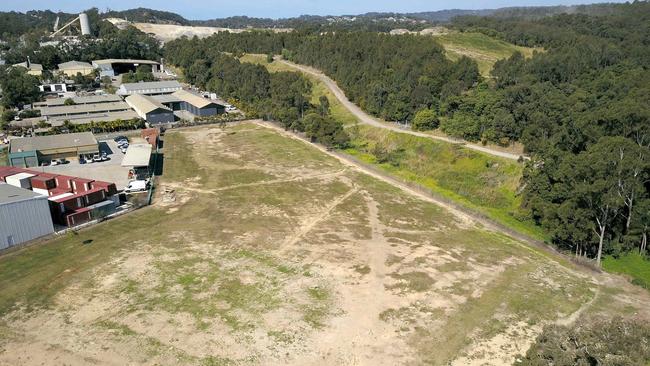
But Mr Smith, who had employed experienced Southport barrister Chris Garlick as an investigator, launched a counter legal attack for $1.65 million.
Mr Yarwood filmed Mr Garlick as they met by chance at Southport’s Registry office in early November.
“Are you filming me, Yarwood?” Mr Garlick asked, before telling stunned customers that Mr Yarwood was facing allegations of ripping off Mr Smith for $4.3 million.
But the mental health issues were a road once taken before. The danger signs were familiar.
A former Somerset College school captain, son of a respected financial commentator and young Liberal rising star, Mr Yarwood was admitted as a solicitor in January 1996.
WILL THE WRECKER IN COURT OVER LOST EARNINGS CLAIMS
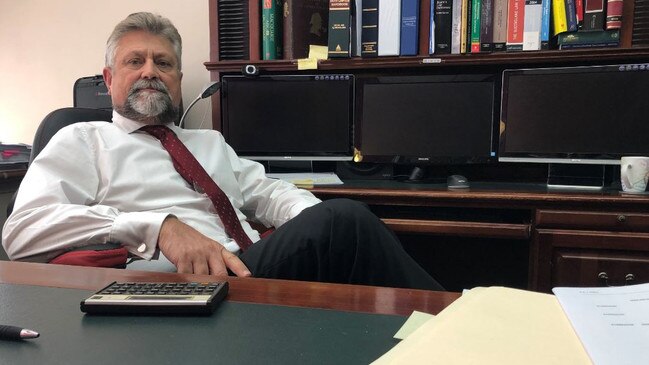
SUBSCRIBE TO THE BULLETIN FOR $1 A WEEK FOR THE FIRST 12 WEEKS
Eight years later he was collecting funds from stamp duty involving clients but refusing to remit many of those to the Office of State Revenue.
On 72 transactions he indicated that stamp duty had been paid when they were forgeries. On 42 transactions, money received as stamp duty was deposited into his own account. The total loss to the State of Queensland was $236,227.
In 2011, he pleaded guilty to fraud. He only served nine months of a 4.5-year jail sentence.
The money owed was repaid by him in full.
The Court of Appeal accepted that his mental health affected all elements of his conduct.
By early January this year, the Smith camp saw the mental health card being played again.
After four sessions, Mr Yarwood’s psychiatrist had written: “At his most recent appointment he remains seriously depressed.”
YARWOOD: COURT BATTLE WILL ‘BLOW OVER’
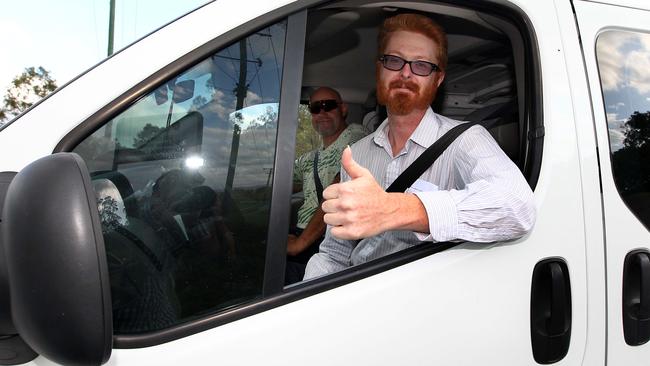
Mr Yarwood told him he had not left home for 10 days and was not attending to his personal care.
He “sat on the couch” for Christmas and New Year.
“He ruminates about suicide, is overwhelmed, and is not coping. His sleep is disturbed, he is grief stricken, trying to come to terms with his past,” the psychiatrist wrote.
The daily dose of his medication — an antipsychotic and tranquiliser — was doubled. Doubts were raised about him being fit to instruct his solicitors.
Court appearances were being deferred. Frustrated by the delays, the Smith legal team in late February hired a private detective.
WILL THE WRECKER: THE RECLUSE AND HIS COURT CASE

Photographs showed Mr Yarwood wearing a white sleeved shirt, long burgundy shorts and red shoes, enjoying a beer at the Edgewater Dining Lounge. His eyes followed two young women as they walked out.
He gathered the paper work in his folder after a casual business meeting, walked across the road and shared a joke with a butcher.
Five days later Mr Yarwood was in ward one in the mental health unit at the Southport Private Hospital. He was given room 8018.
By March Mr Smith sat and enjoyed a drink in Mr Garlick’s chambers after winning a $1.8 million judgment after his opponent failed to contest it.
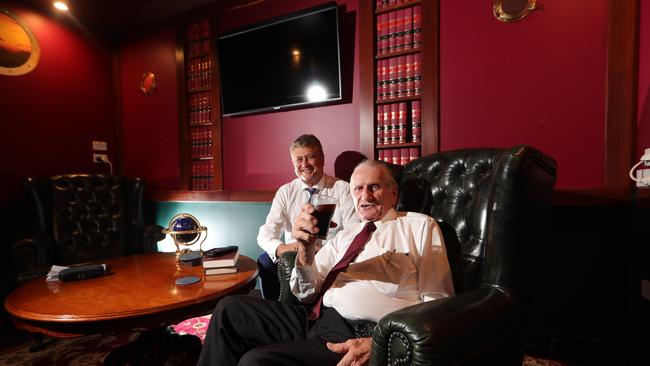
“This guy really stitched me up, right,” he said.
Meanwhile, Mr Yarwood scrambled to write up an appeal.
Mr Garlick, frustrated about missing more court dates, contacted the Deputy Registrar.
“It’s important that you are aware of the tactics that have been explored by Michael Dermott Yarwood and his reason for absolutely avoiding the courts,” he wrote.
Mr Yarwood responded, updating the court on his finances and explaining the details of “The Beaumarchais Trust”. He must have $20,000 in security for further court actions.
“I am currently suffering the malaise of a severe depressive episode associated with my bi-polar I condition,” he wrote.
SUBSCRIBE TO THE BULLETIN FOR $1 A WEEK FOR THE FIRST 12 WEEKS
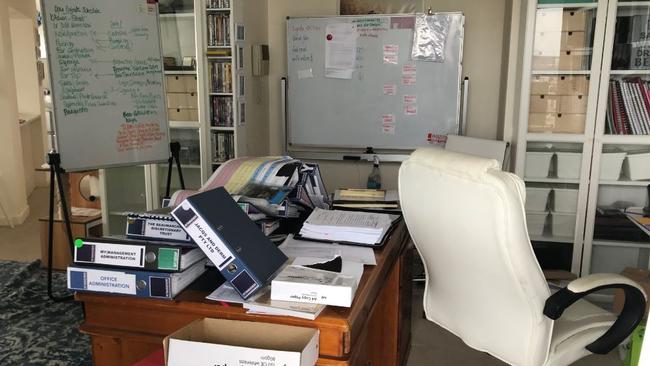
In his 2018 tax return, the trust’s current assets were listed as having a value of $647,800. For 2017-18 those assets were recorded as $700,000.
The trust’s income producing asset was a loan of $610,000 to the Fu Manchu Dining Pty Ltd. The borrower paid more than $2000 a week.
His focus since parting with Mr Smith’s business had been on establishing the Fu Manchu restaurant on Chevron Island and building the Madam Wu restaurant on Isle of Capri.
Company searches show on May 2, Mr Yarwood ceased being a secretary of Fu Manchu and Madam Fu Pty Ltd. He did the same with two other companies, allowing for a new company structure.
Colleagues said that on Tuesday this week, a day before his sudden death, he was in good spirits, talking about returning to Brisbane to continue the fight in the courts.
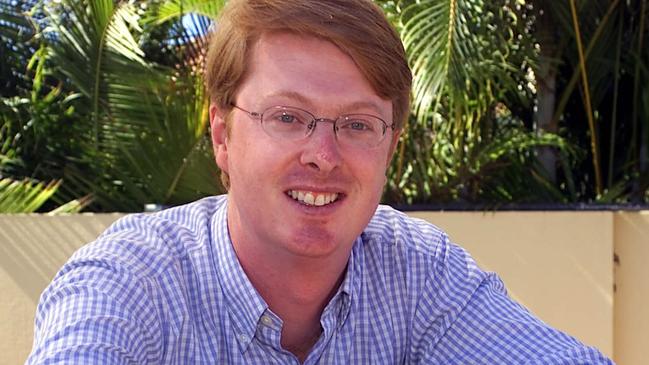
On Wednesday he had planned to move to another unit in his Breaker Street apartment building. A friend was going to help but cancelled.
“He was struggling with his medication, feeling lethargic in the morning,” a mate said.
His body was discovered. There were no suspicious circumstances.
Police had been investigating since Mr Smith made an official complaint of fraud. A criminal conviction could carry up to six years jail, and two years for acting as a lawyer.
But friends closest to Michael Yarwood are convinced of two things. “There is no way he took money from Will Smith. Michael is a remarkable character. I don’t believe he intended to kill himself. He absolutely adored his children, all of them,” a mate said.
Mr Yarwood’s unit is part office. Numerous working folders sit in a bookshelf, with photographs of all his children below.

Of the thousands of pages of legal transcript and rulings, there is a critical document.
In May 2015, QCAT found Mr Yarwood was “not a fit and proper person to engage in legal conduct”.
The Legal Services Commission successfully argued that “dishonesty was an aspect of Mr Yarwood’s character and not caused by the onset of psychiatric illness”.
Justice D.G. Thomas considered the seriousness of the fraud, and that while the existence of a psychiatric disorder “goes some way to explaining why conduct might have occurred, it does not excuse conduct which takes on the character of unsatisfactory professional conduct”.
Michael Yarwood was never shy about doing time. He wrote a prison diary. One of the folders on the bookshelf, the title in bold letters, reads: REPUTATION REBUILD.
That final chapter remains incomplete.


